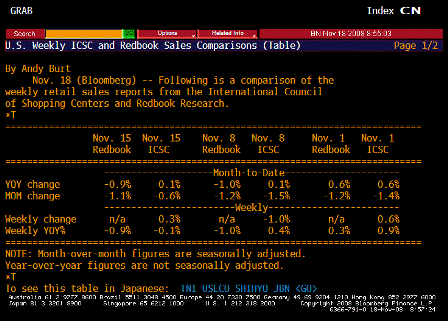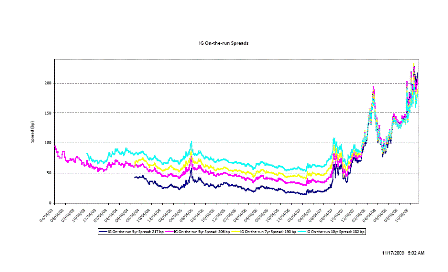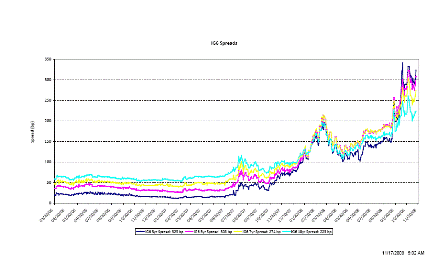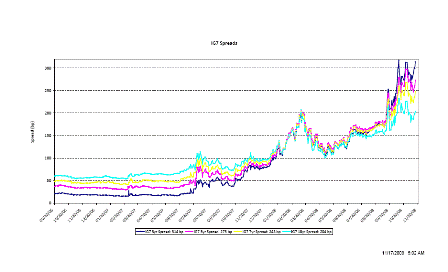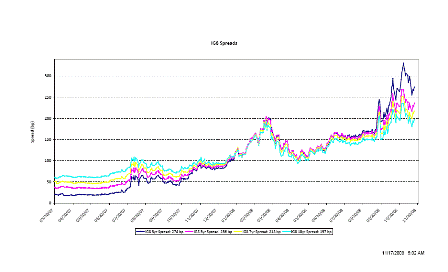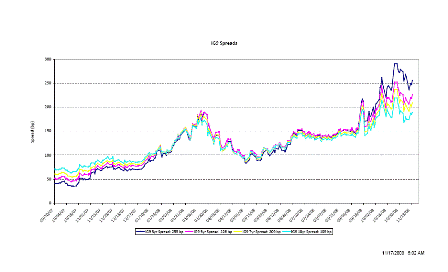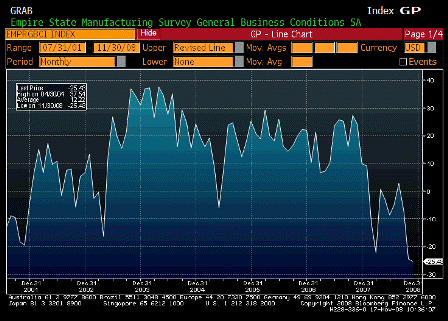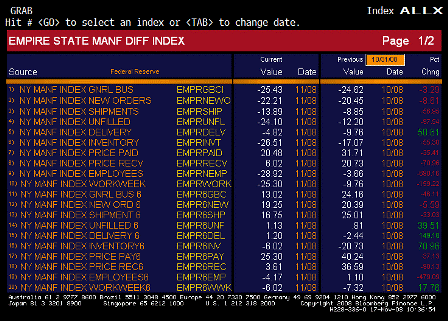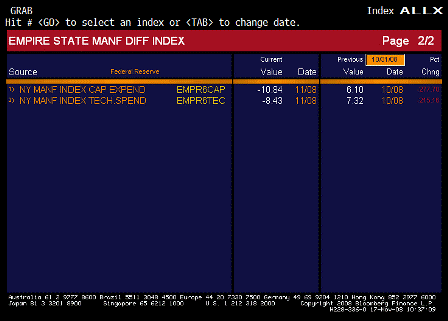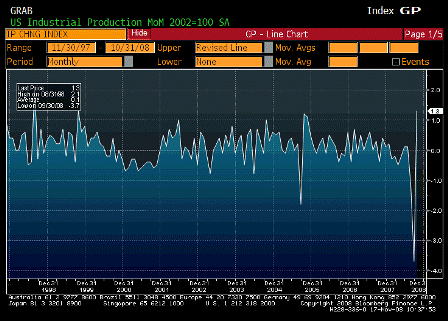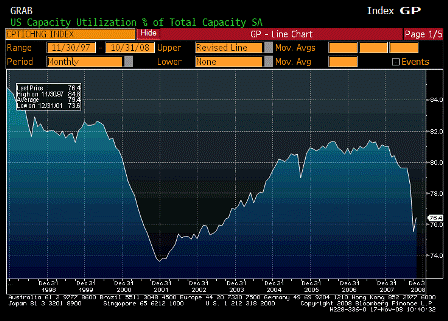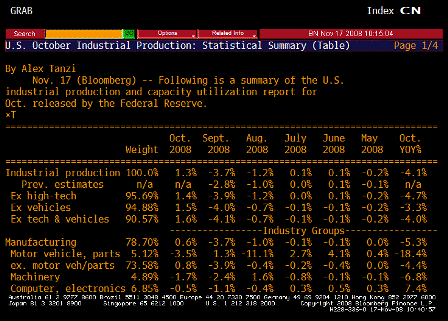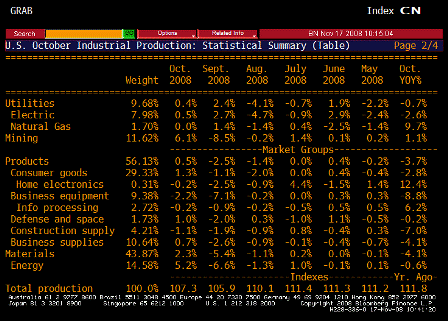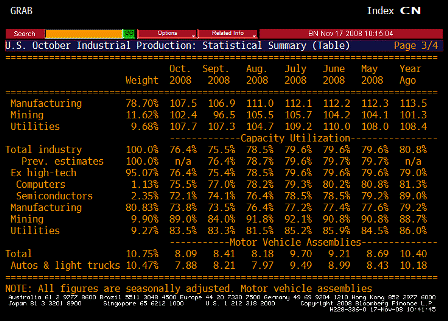[Skip to the end]
Congressional Democrats are now demanding another economic stimulus package to “inject” as much as $300 billion into the economy. The package will fail–
Not.
just like last year’s $333 billion in emergency spending and $150 billion in tax rebates failed.
No it didn’t. Q2 was well over 2% due to the rebates.
There’s a simple reason why.
Government stimulus bills are based on the idea that feeding new money into the economy will increase demand, and thus production.
Which it does.
But where does government get this money? Congress doesn’t have its own stash. Every dollar it injects into the economy must first be taxed or borrowed out of the economy.
The funds the government borrows are the ‘same’ funds the government deficit spends.
No new spending power is created. It’s merely redistributed from one group of people to another.
Wrong, government borrowing does not remove net nominal wealth. All it does is offer treasury securities as alternatives to reserve balances.
Taxing, however, does remove net nominal wealth. Paying taxes lowers reserve balances.
Of course, advocates of stimulus respond that redistributing money from “savers” to “spenders” will lead to additional spending.
No, to that point, giving net new balances to consumers tends to increase spending. Nothing is taken away from savers by deficit spending. In fact, deficit spending increases savings by the same amount.
That assumes that savers store spare cash in their mattresses, thereby removing it from the economy. In reality, nearly all Americans either invest their savings (where it finances business investment) or deposit it in banks (which quickly lend it to others to spend).
No, that’s reverse causation. In fact, the causation goes from loan to deposits. Bank deposits are the result of bank loans. They are not ‘used up’ by lending.
The money gets spent whether it is initially consumed or saved.
It’s not a question of ‘the money.’ Income is either spent or not spent. And borrowing to spend is not constrained by available savings to lend.
Governments don’t create new purchasing power out of thin air.
Yes they do. In fact, that’s the only place it can come from.
If Congress funds new spending with taxes, it is redistributing existing income.
Sort of. But spending isn’t ‘funded’ as it’s merely a matter of government crediting a bank account. It’s just an entry on a spread sheet. Entries don’t ‘come from’ anywhere.
Taxes are also a spread sheet entry- in this case the reduction of someone’s bank balance. But nothing ‘goes’ anywhere- data just changes.
If the money is borrowed from American investors, those investors will have that much less to invest or to spend in the private economy.
No, borrowing to spend from investors moves the balances from the investors account to the account of the recipient of the spending.
If the money is borrowed from foreigners, the balance of payments must still balance. That means reducing net exports through exchange-rate adjustments, thereby leaving net spending on the economy unchanged.
Not at all. Foreigners receive funds from net exporting to the US. They then exchange these bank balances for other financial assets, such as treasury securities. The exchange of one financial asset for another has nothing to do with the balance of payments or trade.
Yet Congress will soon borrow $300 billion from one group of people and then give it to another group of people and tell us we’re all wealthier for it.
Nominal wealth of the non government sectors does go up by 300 billion. Real wealth is another story.
Lawmakers commit this fallacy repeatedly. They tout unemployment and food-stamp spending as stimulus without asking where the programs’ funding comes from. They hype a federal bailout of the states as stimulus, as if having Congress do the taxing and borrowing instead of state governments makes it a free lunch.
Wrong, and the media commits this fallacy repeatedly.
And, especially in this era, when “our crumbling infrastructure” seems to have become the new mantra, legislators and lobbyists tout a 2002 Department of Transportation (DOT) study that they believe proves that every $1 billion spent on highways adds 47,576 new jobs to the economy.
At the macro level, they should say this ‘costs’ 47,576 jobs as work is a cost, not a benefit. The benefit is the output from the work.
The problem is that the study doesn’t actually make that claim. It stated that spending $1 billion on highways would require 47,576 workers (or more precisely, would require 26,524 workers, who then spend their income elsewhere, supporting an additional 21,052 workers).
The fewer workers it takes to get the job done the better for all of us, provided government knows how to sustain demand at full employment levels.
But before the government can spend $1 billion hiring road builders and purchasing asphalt, it must first tax or borrow $1 billion from other sectors of the economy, which then lose a similar number of jobs.
No it doesn’t. The billion is net spending. And the billion it spends are the same funds that it ‘borrows’.
In other words, highway spending merely transfers jobs and income from one part of the economy to another.
Not if it employs unemployed resources.
As economist Ronald Utt has explained, “The only way that $1 billion of new highway spending can create 47,576 new jobs is if the $1 billion appears out of nowhere as if it were manna from heaven.”
Another economist who doesn’t understand how a spreadsheet works.
The DOT tried to correct this misperception in an April 2008 memo specifying that their analysis refers to “jobs supported by highway investments, not jobs created” (italics in the original). The Government Accountability Office and Congressional Research Service also released studies making the same point.
Of course, they have no idea if the people will come from other employment or be the employment of idle resources. And if the economy is already at full employment that’s how many jobs there are.
In reality, economic growth — the act of producing more goods and services — can be accomplished only by making American workers more productive.
Or putting the unemployed to work.
Productivity growth requires a motivated and educated workforce, sufficient levels of capital equipment and technology, a solid infrastructure, and a legal system and rule of law sufficient to enforce contracts.
The best measure of a policy’s impact on economic growth is through productivity rates. Lower marginal tax rates encourage working, saving and investment, all of which increase productivity (as opposed to tax rebates, which are grants that require no additional productive efforts).
Even Laffer would not agree. As he says, his curve works at the extreme- 100% tax- but it’s been impossible to detect much difference in the middle ranges.
Reforming — rather than merely throwing money at — education and infrastructure will raise future productivity. These necessary improvements would take time and shouldn’t be considered short-term “stimulus.”
All good, but doesn’t alter the shortage of aggregate demand that only fiscal policy can address.
It’s time for lawmakers to stop futilely trying to wave the magic wand of short-term “stimulus” spending, which threatens to push the deficit above $1 trillion.
It’s time for the Wall Street Journal to wise up and stop publishing this stuff!
Focusing on productivity will build a stronger economy over the long run and leave America better prepared to handle future economic downturns.
Agreed.
[top]







